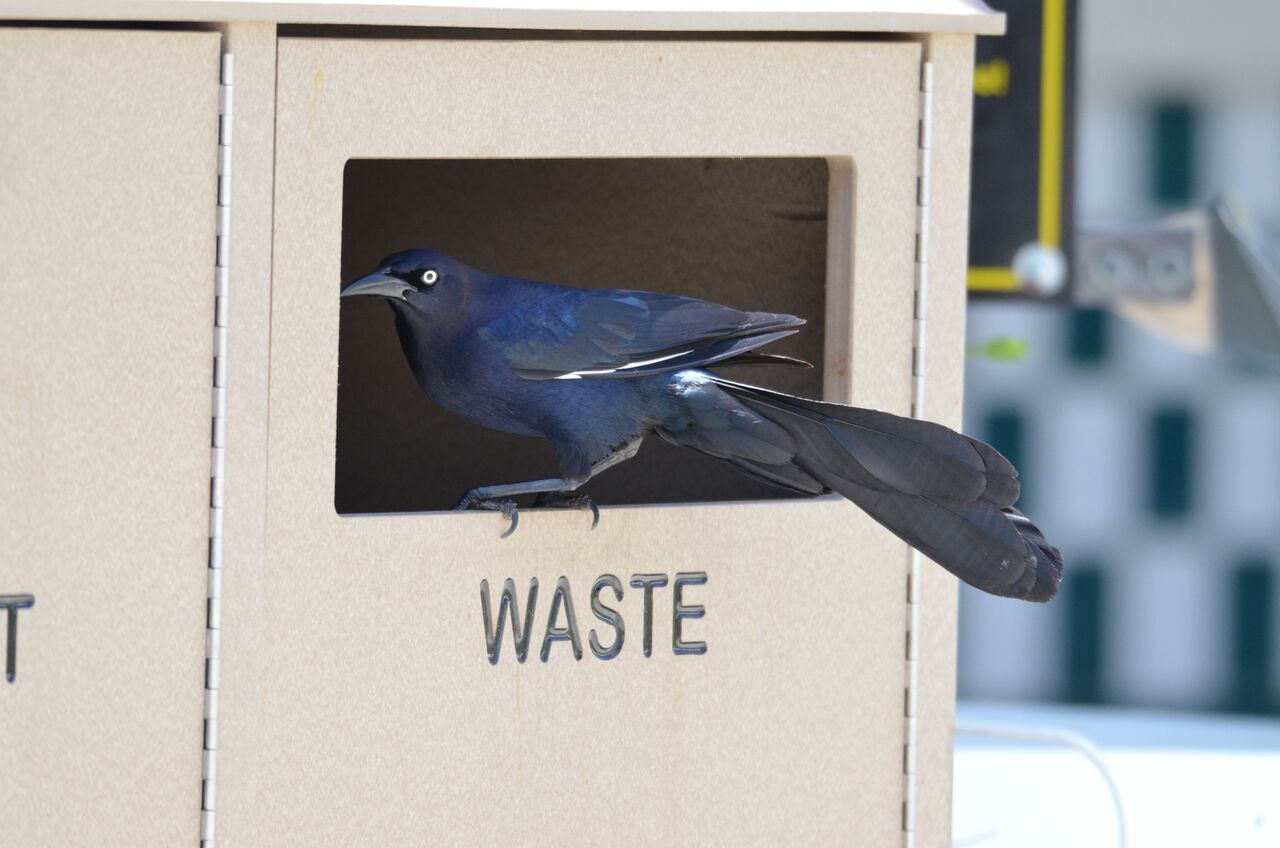
Corina Logan's research on grackles investigates their behavioural flexibility.
I want to understand how behavioural flexibility works and why it differs according to the type of problem being solved.
Corina Logan
Have humans underestimated the intelligence of birds? One person who believes they have is Corina Logan and in the last few years she has focused her attention on one species which has fascinated her for a long time.
Before she started her PhD in Experimental Psychology in 2008, Corina spent time in Costa Rica where she observed the behaviour of great-tailed grackles. She was struck by their apparent intelligence. “They ate food off people’s plates and looked you in the eye. They seemed really smart," she says.
Corina, a Gates Cambridge Scholar who is now a Leverhulme Early Career Research Fellow at the University of Cambridge, obtained funding from the National Geographic Society/Waitt Grants Programme and the SAGE Centre for the Study of the Mind at the University of California Santa Barbara in 2012 to set up a field site in Santa Barbara to study cognition in the great-tailed grackle and to do comparative tests with New Caledonian crows. Relatively few studies have been done on this species up until now, and none on their cognitive abilities.
The research Corina conducted has resulted in three peer-reviewed papers, two of which have now been published. The latest, published by the Royal Society Open Science, is out today.
Its focus is the great-tailed grackle’s behavioural flexibility, its ability to learn to adapt to changed circumstances and whether behaviourally flexible individuals can invent new behaviours to solve novel problems. The tests showed they didn’t, which Corina says suggests that behavioural flexibility and innovation do not measure the same thing, contrary to common assumptions.
What they could do was adapt their behaviour to attain certain goals.
In two of the tests, grackles showed they were able to problem solve. One, the colour association task, involved an ability to discriminate between different colours of tubes. A gold and a silver tube were placed on a table at the same time, with one of the tubes containing hidden food. Once birds learned that the food was always in the gold tube, the food was then switched to the silver tube.
All the grackles were able to quickly change their behaviour to primarily choose the silver tube. Most other species were also able to switch colour cues, but the majority took longer to do so.
The second, more complex challenge, was a problem-solving test called Aesop’s Fable. It involved food floating in a partially filled water tube. The birds had to work out that they could raise the water level and bring the food within reach by inserting objects into the tube. All of the grackles solved the problem, but only two changed their preferences in a follow-up test, thus exhibiting behavioural flexibility.
Corina says that the speed at which the grackles solved problems was not a predictor of their behavioural flexibility. Moreover, different grackles seemed more flexible than others on different tasks.
Corina's third paper which will be out later in the summer will investigate the possible reasons for this.
She is now applying for grants to investigate this variation between grackle populations across their range in North and Central America. She is interested to find out if certain circumstances, such as length of stay in one particular area, how well fed they are or genetics play any part in determining which populations are best able to adapt to new challenges. She is also interested to see if grackles are more flexible in particular contexts. “I want to understand how behavioural flexibility works and why it differs according to the type of problem being solved,” she says.
*See Corina's experiments in action: https://youtu.be/_PQEaYxw0fw
For an overview of her research, see https://www.youtube.com/watch?v=WtanQqoISCs
Behind the scenes with Tequila: https://www.youtube.com/watch?v=X_Xl8cK5LLk












